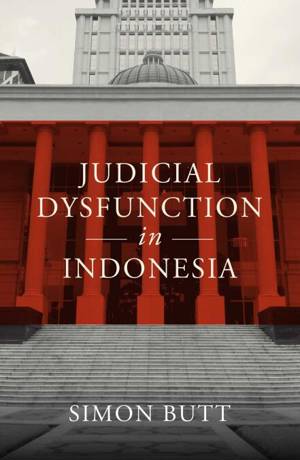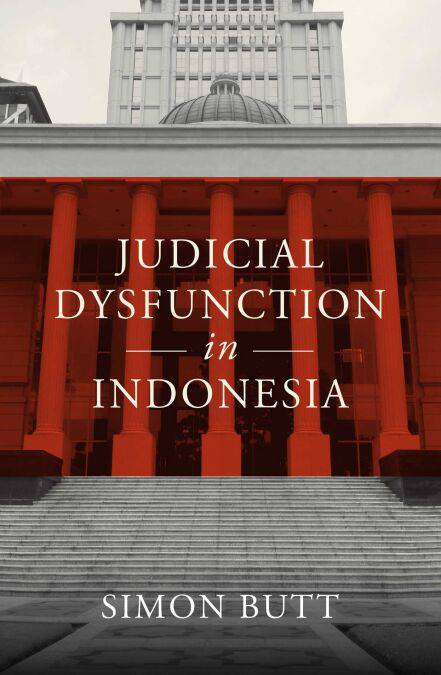
- Afhalen na 1 uur in een winkel met voorraad
- Gratis thuislevering in België vanaf € 30
- Ruim aanbod met 7 miljoen producten
- Afhalen na 1 uur in een winkel met voorraad
- Gratis thuislevering in België vanaf € 30
- Ruim aanbod met 7 miljoen producten
Zoeken
Omschrijving
Indonesia's judicial system has long been described as dysfunctional. Many of its problems developed out of decades of authoritarian rule, which began in the last few years of the reign of Indonesia's first president, Soekarno. By the time President Soeharto's regime fell in 1998, the judiciary had virtually collapsed. Judicial dependence on government, inefficiency and corruption were commonly seen as the main indicators of poor performance, resulting in very low levels of public trust in the courts. To address these problems, reformists focused on improving judicial independence. Yet while independence is a basic prerequisite for adequate judicial performance, much depends on how this independence is exercised. Judicial Dysfunction in Indonesia demonstrates that Indonesian courts have tended to act without accountability and offers detailed analysis of highly controversial decisions by Indonesian courts, many of which have been of major political significance, both domestically and internationally. It sets out in concrete terms, for the first time, how bribes are negotiated and paid to judges and demonstrates that judges have issued poor decisions and engaged in corruption and other misconduct, largely without fear of retribution. Further, it explores unsafe convictions and public pressure as a threat to judicial independence. Judicial Dysfunction in Indonesia shines a sorely needed empirical light on the Indonesian judicial system, and is an essential resource for readers, scholars and students of Indonesian law and society.
Specificaties
Betrokkenen
- Auteur(s):
- Uitgeverij:
Inhoud
- Aantal bladzijden:
- 372
- Taal:
- Engels
Eigenschappen
- Productcode (EAN):
- 9780522879926
- Verschijningsdatum:
- 4/12/2023
- Uitvoering:
- E-book
- Beveiligd met:
- Adobe DRM
- Formaat:
- ePub

Alleen bij Standaard Boekhandel
+ 18 punten op je klantenkaart van Standaard Boekhandel
Beoordelingen
We publiceren alleen reviews die voldoen aan de voorwaarden voor reviews. Bekijk onze voorwaarden voor reviews.











